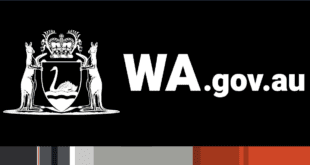Cautionary Tale: The Rise and Fall of Medical Transcription
As the world contemplates the dizzying ascent of Artificial Intelligence (AI) and its implications for workers, we delve into a cautionary tale of how technology both enabled and destroyed a sunrise industry in the 21st century.
The Growth of Medical Transcription in India
In the late 1990s, the laying of fibre-optic cables across the globe opened doors to new possibilities for business. Medical transcription, the process of converting dictated medical reports into written format, experienced significant growth in India during this time. American doctors faced challenges in dealing with their notes, such as paying overtime to secretaries, dealing with mistakes, and managing leave and illness absences. However, with the rise of the internet and IT connectivity, the ability to dictate notes to transcribers overseas became a cost-effective and efficient solution.
India proved to be an attractive option for offshore outsourcing due to its pool of educated individuals proficient in English with strong typing skills. Indian transcription companies offered competitive pricing without compromising on quality, making them an ideal choice for American healthcare providers looking for error-free transcription. The time zone difference allowed for overnight turnaround times, ensuring prompt delivery of transcribed reports and improving efficiency in patient care.
Indian transcriptionists brought more skills to the table compared to American secretaries, as they didn’t disappear on holidays and didn’t charge overtime. The seamless IT connectivity facilitated real-time communication between health care providers and transcription companies, allowing for quick feedback and resolution of clarifications. Additionally, Indian companies invested in extensive training programs to educate their workforce on medical terminologies, American regulations, and data security protocols, further enhancing their reputation in the industry. Both sides believed they had a long-term winner.
The Unexpected Demise: AI and Voice Recognition
However, the advent of AI and voice recognition software proved to be the industry’s downfall. AI technology advancements, specifically in natural language processing and speech recognition, led to the development of remarkable voice recognition software capable of accurately transcribing spoken words into written text. Health care providers could now adopt automated transcription systems at a fraction of the cost of outsourcing to human transcriptionists.
Early versions of voice recognition software had limitations, but subsequent AI advancements significantly improved accuracy. Machine-learning algorithms enabled continuous analysis and learning from vast amounts of medical data, reducing errors and enhancing transcription quality. Integration of AI transcription software with electronic health record systems streamlines operations, improving data accessibility and efficiency.
The Sobering Lesson and Future Challenges
This collapse of the medical transcription business offers a sobering lesson for industries. Underestimating the speed at which technology renders business models obsolete can have significant consequences. AI’s ongoing evolution will continue to shape the health care industry and disrupt traditional roles. Indian radiologists who used to read MRIs for American hospitals have already been displaced by AI systems. With the Oxford Martin School estimating that 30% of future jobs will be ones that do not exist today and at least 30% of current jobs becoming unnecessary or unviable, businesses must adapt and focus on upskilling to survive in this rapidly changing landscape.
Contact: editor@theweek.in
 Mind Uncharted Explore. Discover. Learn.
Mind Uncharted Explore. Discover. Learn.



